The German Federal Government, KfW and the Bernhard-Nocht-Institute for Tropical Medicine have joined forces to detect impending epidemics in East Africa at an early stage. To this end a regional network of mobile laboratories is being set up for Burundi, Kenya, Rwanda, Southern Sudan, Tanzania and Uganda. And now, in the corona crisis, the technology is much-needed.

The mobile laboratories were already tested in 2019 in a disaster exercise in the border region between Tanzania and Kenya.
Since the beginning of the corona pandemic, warnings have been issued against the spread of the virus in Africa. The national health care systems there are patchy to fragmented, the hygienic conditions are often far below European standards and millions of people live in poverty. In mid-April 2020, the World Health Organization (WHO) warned that the number of infections between the Mediterranean coast and the Cape of Good Hope could increase from a few thousand to ten million cases in the course of this year. Further scientific studies predicted 300,000 corona deaths (Imperial College London) in the best case, and 3.3 million in the worst case (UN Economic Commission for Africa). There are also voices that predict that Africa will not experience such an extreme outbreak due to its younger population structure. But the warnings are there.
In view of the impending catastrophe, East Africa is currently experiencing a small ray of hope. At the end of April, the East African Community of States (EAC) was able to provide mobile laboratories for the rapid and modern molecular biological diagnosis of infectious diseases in its six member countries Burundi, Kenya, Rwanda, Southern Sudan, Tanzania and Uganda. Originally designed to identify and control Ebola outbreaks in their own countries more quickly, the same molecular biology testing methods can now be used by specially trained laboratory staff to diagnose the immigrant Covid 19 pathogen. A happy coincidence.
Help for Cameroon as well
After South Africa, Cameroon has the most Covid-19 infections south of the Sahara. Only 50 intensive care beds are available in the country for the approximately 26 million inhabitants. Since the outbreak of the disease, on some days only 30 people are tested for a new infection.
In view of this situation the country is now receiving up to 1 million euros to finance a response plan for Covid-19, tapping on residual funds under a health programme that KfW Development Bank is supporting in Cameroon on behalf of the German Federal Government together with the French development agency. The money, which has now been reallocated to the fight against corona, is to be used primarily to strengthen the country's diagnostic capacities. Under the leadership of the Ministry of Health and the Centre Pasteur of Cameroon, 17 partner laboratories throughout the country will be modernised, and Covid-19 screening tests can then be carried out at regional level at short notice. In addition, laboratory materials and equipment as well as 6,000 additional screening tests will be procured.
This ray of hope was also made possible with German funding. KfW is giving 27 million euros to the East African Community of Nations on behalf of the German Federal Ministry for Economic Cooperation and Development (BMZ) to set up a network of mobile laboratories for pandemic prevention and, in the longer term, to combat antimicrobial resistance. In the first project phase, which has been running since 2018, a total of nine mobile laboratories are being financed for the East African countries.
Although this project was designed for the timely detection of epidemics emerging in Africa, the EAC countries now benefit from more test equipment, more test kits and more trained personnel in the upcoming pandemic.
The beginnings of the German commitment, which is being carried out in cooperation with the Bernhard-Nocht-Institute for Tropical Medicine (BNITM) in Hamburg, go back to the time of the devastating Ebola epidemic in West Africa from 2014 to 2016. Two years after Ebola was thought to have been defeated, new outbreaks occurred in the Democratic Republic of Congo, first in the province of Équateur and then in North Kivu. For neighbouring countries like Uganda, the outbreak in North Kivu was particularly dangerous. The area is one of the most densely populated in the Democratic Republic of Congo, with more than one million internally displaced persons and a high level of migration across national borders. Since then, the Congo has not come to rest. The epidemic, which began in 2018, is still ongoing. New cases are also reported in 2020. So far, the WHO has registered over 2,200 deaths (as of April 2020).
“Outbreaks of epidemics have to be detected quickly.”
Dr Muna Affara and Dr Florian Gehre are molecular and microbiologists at the BNITM in Hamburg. They too are concerned about the recurrent outbreaks of Ebola in the Congo and have high hopes for the project they supported in Arusha. "At the moment it can take up to three weeks to confirm a suspected case in a remote area," says Dr Affara. "To prevent the spread of epidemics, outbreaks must be detected quickly so that the necessary protective measures can be taken immediately," adds Dr Gehre. "This is precisely the purpose of the network of mobile laboratories that is to be set up in this region.
The network of mobile laboratories
The mobile laboratories are an important new component for an early warning system in the EAC. Dr Affara and Dr Gehre from BNITM have been seconded as full-time advisors to the headquarters of the East African Community of Nations in Arusha. On behalf of the EAC they take care of the necessary technical support and capacity building.

Laboratory staff in Namanga, Tanzania, during the simulation of an outbreak co-organized by WHO. An identical laboratory was tested on the Kenyan side.
During the current first project phase, they are supporting the establishment of new mobile laboratories in the EAC countries in cooperation with the national health laboratories. The aim is to be able to take countermeasures as soon as an infection first occurs. Suspected cases in remote areas are particularly problematic because it takes weeks to confirm or give the all-clear. Until now, blood samples have had to be transported from the regions to a reference laboratory in the capital or by plane to more qualified laboratories in other locations. This wastes valuable time that could be used for effective countermeasures.
With the mobile laboratories this will change. They are sent to the region in question when an outbreak is suspected and, once they are set up, can provide reliable diagnoses within 24 hours. Of course, this requires not only appropriate laboratory equipment, but also qualified teams that can set up the laboratories and carry out the highly complex tests.

On 20 May 2020, two mobile laboratories were handed over to the Kenyan government in Nairobi. The keys were delivered by the German ambassador Annett Günther to the Kenyan minister Adan Mohamed (right in the picture). Oskar von Maltzan, director of KfW’s Nairobi office, was also present (left in the picture).
Intensive training vor specialists
In December 2018, the BNITM organised an intensive training course at the Institute's headquarters in Hamburg as the starting signal for the capacity building activities. "We combined the experience of three areas of our institute, namely virology, infection epidemiology and diagnostic development. All three areas are essential for the establishment of the mobile laboratories," explains Professor Jürgen May, head of the Department of Infection Epidemiology. In the previous months, the BNITM experts had selected two specialists from each of the six partner countries who had good prerequisites and qualifications to work in a mobile laboratory team and - even more importantly - to pass on the necessary skills to other laboratory technicians in their countries.
During the four weeks that the African experts spent in Hamburg, they learned how a mobile laboratory stowed in 15 crates is quickly assembled and later disassembled and packed, how the laboratory is made operational, if necessary with the help of power generators, how different pathogens are determined with meaningful diagnostic tests and - last but not least - how to protect themselves from infection when working with highly infectious samples. With the help of a glove box, an indispensable part of the equipment of mobile laboratories, the samples are first inactivated before further tests are carried out. Practicing working with the glove box is an essential part of the training course.

During intensive training at the Bernhard-Nocht-Institute for Tropical Medicine (BNITM) in Hamburg, African specialists also learn how to use the so-called glove box.
"It was great to see how quickly the different country teams started working together, helping each other out and complementing each other's skills," says Dr Florian Gehre. "At this first training course in Hamburg we experienced how the EAC's vision of effective regional pandemic prevention could become reality".
In 2019 there was a follow-up training at the EAC headquarters in Arusha, each country team brought two additional laboratory technicians. Dr Affara and Dr Gehre were able to support the already trained experts in sharing their skills and knowledge with the prospective new colleagues. However, even though all nine mobile laboratories have been provided in the six countries, the training continues, so that the number of qualified employees for the laboratory network can be gradually increased to up to twelve per country. Two additional laboratories have already been delivered to Arusha for training purposes and have been used in Tanzania and Uganda for diagnostics for Dengue and Ebola.
The use of mobile laboratories as an innovative method is widely accepted by governments and health experts in EAC partner countries. They have great confidence in the increased speed and flexibility this approach offers them in the fight against Ebola and other insidious diseases - and now, fortunately, also against the coronavirus.
Published on KfW Stories: 16 April 2019; last updated 5 May 2020.
The described project contributes to the following United Nationsʼ Sustainable Development Goals
Goal 3: Ensure healthy lives and promote well-being for all at all ages
Health is the goal, prerequisite and result of sustainable development. Supporting health is a humanitarian requirement – both in developed and developing countries. Around 39 per cent of the worldʼs population lives without health insurance. In poor countries, this amount even exceeds 90 per cent. Many people still die from diseases that are not necessarily fatal with the right treatment, or that could easily be prevented with vaccinations. Strengthening health systems, particularly by making vaccines widely available, can make it possible for us to drive these diseases back and even eradicate them by 2030.

All United Nations member states adopted the 2030 Agenda in 2015. At its heart is a list of 17 goals for sustainable development, known as the Sustainable Development Goals (SDGs). Our world should become a place where people are able to live in peace with each other in ways that are ecologically compatible, socially just, and economically effective.





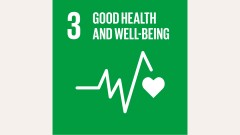
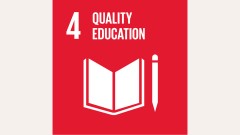
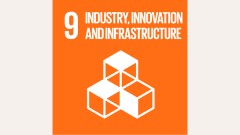

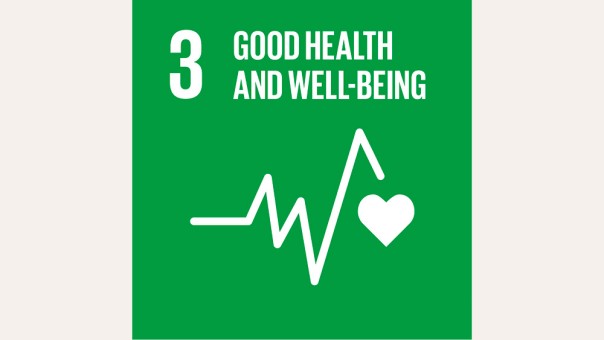
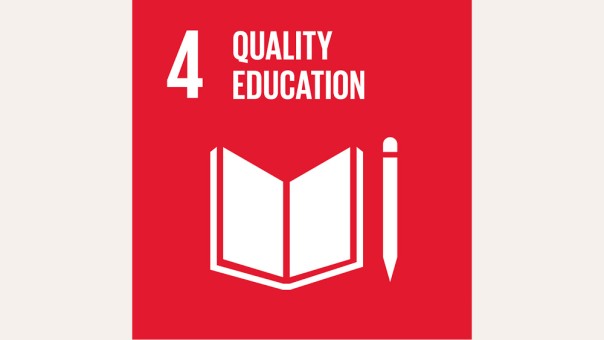
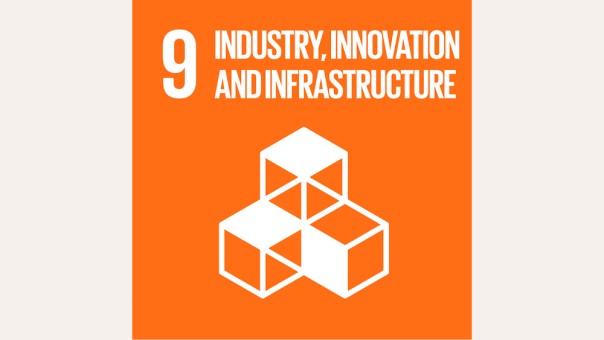


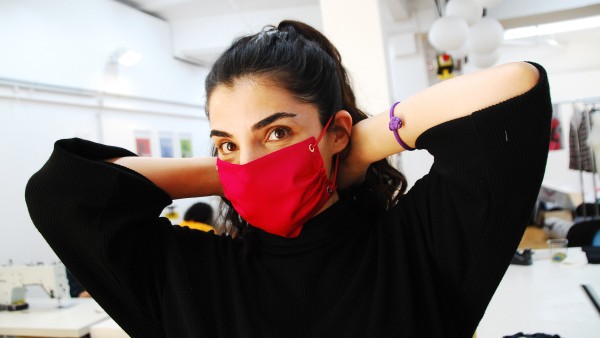
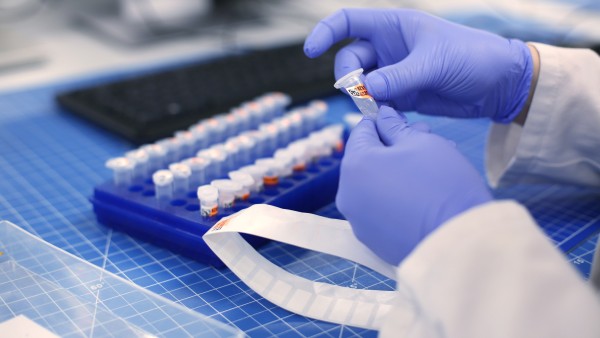
Data protection principles
If you click on one of the following icons, your data will be sent to the corresponding social network.
Privacy information